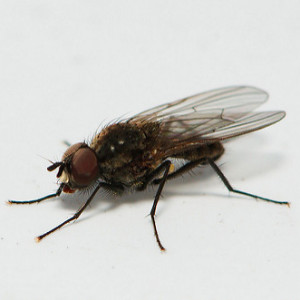
Having flies in your home can be very annoying and you may spend 10 or so minutes chasing them around with a fly swatter, this is fairly effective when their numbers are low, however if you are dealing with a larger fly problem then this won’t be enough! You need to start by removing the things that are attracting the flies in the first place. Flies are attracted to waste food and produce which is an ideal place for them to breed and lay their eggs which will in turn, cause a maggot infestation.
There are 5 main steps involved in order to effectively control flies, inspection, sanitation, exclusion, mechanical and chemical control. Below you will find more information on each of these steps.
House Fly Inspection
In order to keep flies out of your house you first need to establish where they are and what is attracting them to that area. So you need to inspect your property to find any areas and materials that are attracting them, if when you find the problem flies you discover they are cluster flies or fruit flies and not house flies then you should speak to your local pest controller as control methods will be different to that of the house fly.
Sanitation
House flies are attracted to filth, hence their nick name filth flies! So, by ensuring everything is clean will help to reduce the flies, here are some tips:
- Make sure bin lids are properly closed and empty bins regular
- Clean up any spills straight away and keep non-refrigerated food well covered.
- Keep areas where there’s pet food or litter clean
- Reduce moisture in your home and fix any drips you may have from taps or pipes
Exclusion
Exclusion means you need to eliminate any of the ways that flies are entering your property therefore they are excluded from entering your home. These can include:
- Using window and door screens and keeping them well maintained
- When not in use keep doors windows and vents closed
- You can plug and gaps or wholes that they may be using with nylon, scouring pads or window screening
Mechanical control
This includes anything that kills or captures flies without the use of chemicals, some examples are as follows:
- Fly swatters, these only work well when your dealing with small numbers of flies
- Sticky fly papers or ribbons with odor attract will trap flies
- You can use bait traps with, sugar, meat, fruit or molasses. Pre-baited traps tend to use pheromones
- UV Light traps work well but they must be placed properly, it needs to be put no more than 5ft off the ground and away from any competing light sources and food preparation areas, also make sure it cant be seen from the outside as it could attract more flies in!
Chemical Control
This may be what you first think of when it comes to controlling house flies however it is recommended that other methods are tried first as flies have become increasingly more resistant to over the counter insecticides which in turn makes them harder to control! A few examples of chemical control methods would be:
- Use pesticide releasing fly strips in small unoccupied rooms and attics
- Spray a residual insecticide around doors, windows, screens eaves or any other potential entry points. Make sure the label on the spray reads ‘for flies’.
- Use all pesticides with caution, make sure you carefully read the label and follow directions for use.
If your fly problems persist then contact you local pest controller to provide you with their knowledge and skills to make short work of a fly infestation.
Contact Advance Pest Control Bristol if you are having problems with house flies or any other types of fly on 0777 150 3107 | 0117 908 8890
Recent Comments